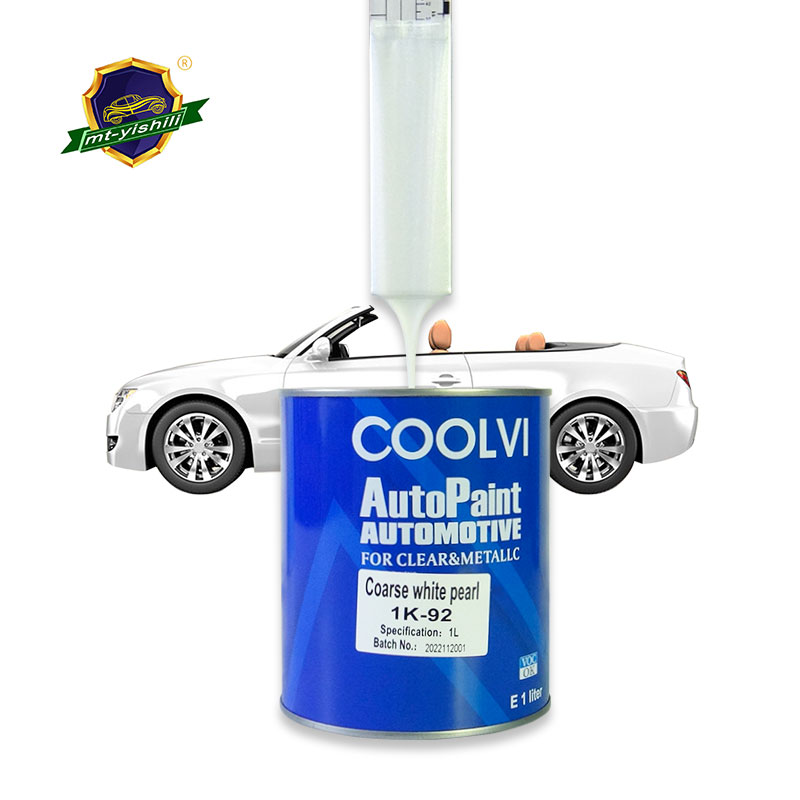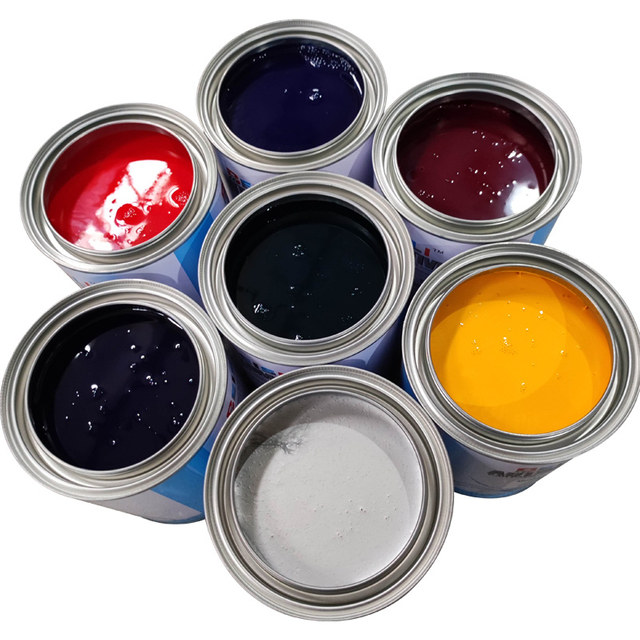
When it comes to automotive paint jobs, achieving a smooth, flawless finish is the ultimate goal for car enthusiasts, mechanics, and professionals alike. To achieve this, using the right car thinner is critical. A good thinner not only ensures the paint is applied properly but also plays a role in how well the paint adheres to the vehicle’s surface. With a variety of automotive thinners available on the market, how do you determine which one is the best for your specific needs? In this article, we’ll explore the different types of automotive paint thinners, their benefits, and factors to consider when selecting the best thinner for your car.
What is Automotive Paint Thinner?
Automotive paint thinner is a type of solvent used to dilute or thin automotive paints, making them easier to apply during the spraying or brushing process. Thinners also help in cleaning brushes and tools, removing excess paint, and correcting any imperfections. The use of the appropriate thinner is crucial for achieving the best results, as it affects the viscosity of the paint, the application technique, and the final appearance of the paint job.
Different Types of Automotive Paint Thinners
There are several types of car thinners available, each designed for specific purposes. Choosing the right thinner depends on the type of paint you're using, the weather conditions, and the application method. Let’s look at the main types of thinners commonly used in automotive painting.
Universal Thinner
This type of thinner is versatile and can be used with a variety of automotive paints, including both solvent-based and water-based paints. It is designed to reduce the thickness of paints and primers, making it easier to spray.
Fast-Drying Thinner
Ideal for use in high-temperature environments or when quick drying is required, fast-drying thinners reduce the drying time of the paint. They are particularly useful for clear coats and metallic paints, which require quick drying to avoid unsightly marks or imperfections.
Slow-Drying Thinner
For those working in cooler climates or who need a longer working time, slow-drying thinners are the ideal choice. These thinners allow more time to work with the paint, reducing the chances of mistakes during application.
Lacquer Thinner
A more aggressive thinner, lacquer thinner is used for specific types of paints like lacquer. It is excellent for cleaning up tools and surfaces when lacquer-based paints are being used, though it should be used with caution due to its strong solvent properties.
Epoxy Thinner
If you're using epoxy primers or other epoxy-based products, an epoxy thinner will help achieve the correct viscosity. It is ideal for creating a durable, long-lasting base layer for the paint.
How to Choose the Best Thinner for Automotive Paint
Choosing the right automotive paint thinner depends on a variety of factors. Here are some key considerations to keep in mind when selecting the best thinner for your car:
1. Type of Paint
Different paints require different thinners. Solvent-based paints generally need automotive paint thinners that are compatible with their chemical properties. Water-based paints, on the other hand, require thinners specifically designed for water-based formulations. Always read the manufacturer’s instructions to find the recommended thinner for the specific paint you're using.
2. Climate and Weather Conditions
The temperature and humidity of the environment where you’ll be painting play a significant role in determining which thinner is best. Fast-drying thinners are ideal for warm, dry climates where the paint needs to set quickly. On the other hand, slow-drying thinners are preferred in cooler or more humid conditions to prevent premature drying and allow for smoother application.
3. Viscosity of the Paint
The viscosity of the paint directly impacts how much thinner is needed. If the paint is too thick for spraying, the right thinner can help achieve the desired consistency. Typically, clear coats and base coats need to be thinned to a specific viscosity for proper spray application.
4. Application Method
Whether you're applying paint using a spray gun or a brush will also affect the choice of thinner. Spray guns generally require thinned paint to ensure an even spray and smooth finish, while brush application may require a different approach. Generally, sprayable automotive paints need more thinning than those applied by hand.

Benefits of Using the Best Automotive Paint Thinner
Using the best thinner for automotive paint offers several benefits, including:
Improved Paint Flow
A high-quality thinner helps the paint flow smoothly during application, ensuring an even coat that won’t be too thick or too thin.
Enhanced Finish
By selecting the right thinner, you can achieve a flawless, smooth finish with minimal streaks or brush marks.
Faster Drying Time
Some thinners speed up the drying process, allowing for faster application of multiple coats and reducing the total time needed to complete the paint job.
Cleaner Tools and Surfaces
The best automotive thinners also help clean your painting tools, reducing the mess and saving you time after finishing the job.
Product Comparison: Top Automotive Paint Thinners
Here’s a comparison of some of the top automotive paint thinners available on the market today, based on their type and application:
| Product Name | Type of Paint | Best Use | Features |
| Dulux Car Thinner | Solvent-based paints | General thinning, clear coats | Fast-drying, versatile, works well with most paints |
| Dupli-Color Thinner | Lacquer paints | Cleaning tools, reducing viscosity | Ideal for lacquer paint, excellent for tool cleanup |
| Rust-Oleum Thinner | Oil-based paints | Thinning oil-based primers | Perfect for oil-based finishes, slow-drying for fine details |
| 3M Automotive Thinner | Epoxy, enamel, & acrylic paints | Professional-grade thinning | High-quality thinner for multiple automotive paints, great for industrial uses |
FAQs
Q1: What is the best thinner for automotive paint?
A1: The best thinner for automotive paint depends on the type of paint being used and the climate conditions. Generally, Dulux Car Thinner is a versatile option that works well with most automotive paints, offering fast drying and smooth application.
Q2: Can I use regular paint thinner for automotive paint?
A2: Regular paint thinners can be used for automotive paint in some cases, but it’s best to use automotive paint thinners specifically designed for vehicle applications to ensure the best finish.
Q3: How do I know how much thinner to add to my paint?
A3: The amount of thinner to add depends on the paint type and application method. Generally, clear coats and base coats require about 10-20% thinning, but always refer to the manufacturer’s instructions for the best results.
Q4: What is the difference between 1K and 2K automotive paint thinners?
A4: 1K automotive paint thinners are designed for single-component paints, while 2K thinners are used with two-component paints, which require mixing with a hardener for a stronger and more durable finish.
Q5: Can I use thinner to remove automotive paint?
A5: Yes, paint thinners can be used to remove automotive paint. However, it's important to use the appropriate thinner that won't damage the vehicle’s surface. Lacquer thinner is often used for this purpose.
Q6: Is it safe to use automotive thinners indoors?
A6: No, always use automotive thinners in a well-ventilated area to avoid inhaling harmful fumes. It’s advisable to wear protective gear, including gloves and a mask.
Q7: Can automotive paint thinner be used to clean brushes?
A7: Yes, car thinner is commonly used to clean brushes, spray guns, and other painting tools. Simply soak the tools in the thinner to remove any paint residue.
Selecting the best car thinner for automotive paint is essential for achieving a professional, smooth finish. Whether you’re working with clear coats, metallic paints, or epoxy primers, understanding the different types of thinners and how they affect the paint application process is crucial. For most users, products like Dulux Car Thinner offer great versatility, performance, and results.
By considering factors like paint type, climate, and application method, you can make an informed decision about which thinner to use for your project. Be sure to follow all safety guidelines and manufacturer recommendations for the best results.


























